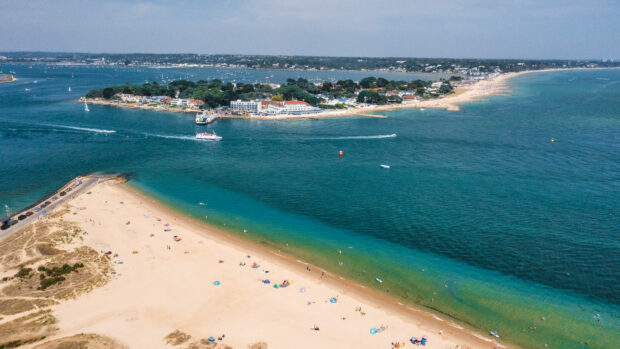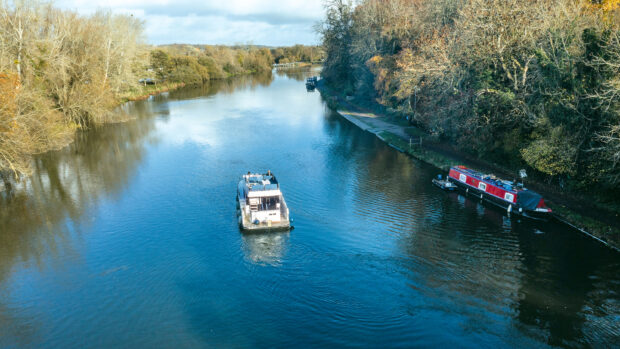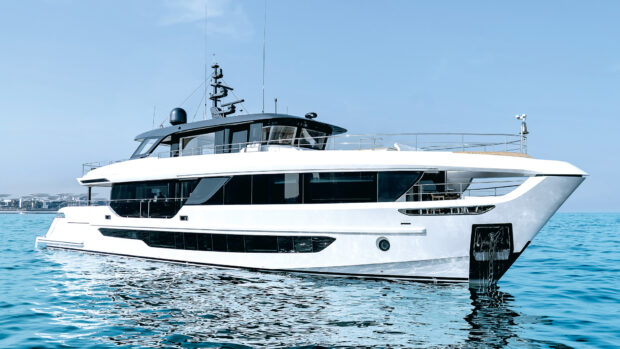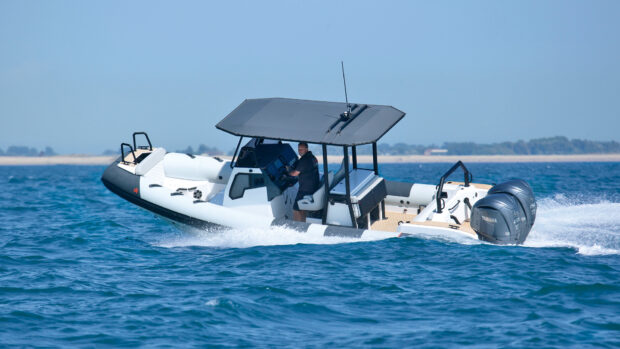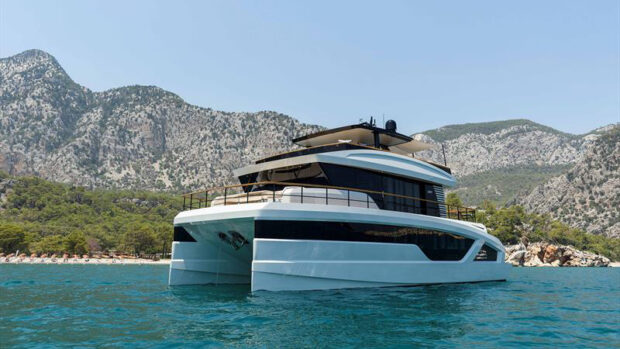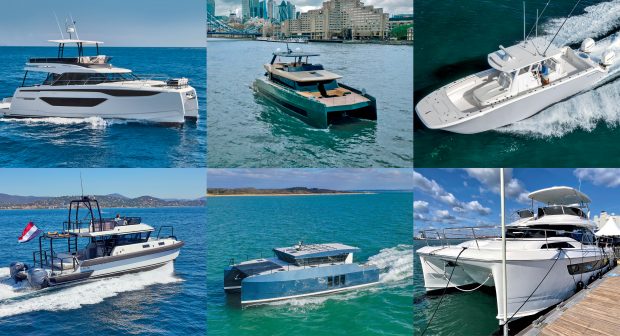It’s never too late to buy your first boat, as one MBY reader discovered after years of dreaming. Phil Clayton shares his story...
I have always lived by the sea in Essex and find it a very calming place to be, yet despite this close proximity to the water, I never went boating as a child.
Later on in life, when my wife and I started seeing each other, we booked a boat trip whilst on holiday together and loved it so much that holiday boat trips became our thing.
More often than not they were the highlight of our holidays. Once kids came along, these trips were temporarily suspended but as soon as they were old enough, we started booking them again and found that the kids loved them too.
Article continues below…

The ultimate refit? How this 30-year-old Sunseeker was brought back to life

How to buy a used boat: Everything you need to know to buy with confidence
What started as a holiday treat began to grow into something of an obsession. My career in banking involved a fair amount of travelling and I’d religiously pick up a copy of Motor Boat & Yachting on my way through the departure lounge that I’d thumb through for the rest of the trip, learning about boats and dreaming about the ones I’d like to own.
It wasn’t until 2012 that the idea of actually buying my own boat started to turn into a definite plan of action, egged on by an enthusiastic colleague.
I think he was envisaging the Côte d’Azur rather than the muddy River Thames, but having told him I’d get a boat within a few years, I felt I needed to deliver!

This prompted me to start putting money aside. In the meantime I used my holidays and business travel to feed my enthusiasm and do more boat trips whenever I could.
My best mate John and I would also drag our kids along to the London Boat Show every January to go on the big stuff, just to keep the lottery shopping list current!
By the end of 2019, I had amassed a healthy £17,000 in my boat buying fund and was ready to proceed with my long-held plans.
With the advice of my brother-in-law (who is an experienced boater), I decided to break the entire process down into a series of logical steps.

Phil visited various boat shows before making his choice. Photo: Getty Images
Step 1: Get formal boat training
Despite having been on boats of all types all over the world and having driven a few of them, I had no real boat-handling experience. So my wife insisted I get formal boat training.
I booked myself onto an RYA Level 2 powerboat course with the Essex Power Boating School and absolutely loved it. I completed the course in February 2020 in gale-force conditions but Peter, who runs the school, made it so much fun that the driving wind and rain just enhanced the whole experience.
I learnt boat handling skills, man overboard drills, basic radio usage and plotting a course using charts. When I finally bought my own boat, I also found that having this qualification helped reduce my boat insurance quotes, too.

The Jeanneau Merry Fisher 895 proved to be way over budget
Step 2: Look at boats for sale
Before seeing what my nominal £17,000 would buy, my wife, kids and I drew up a list of what we all wanted from a boat. It needed to have a large enough cockpit to sit eight people in comfort, space on the bow to relax, some kind of inside space for when the weather closes in, a proper heads compartment (no portaloo!), a galley and either outboard or shaft-drive power as I wanted to avoid the additional maintenance costs of a sterndrive.
However, as soon as I started to look at my favourite websites (Apolloduck, Boatshop24, Findafishingboat), it became apparent I’d be looking at quite an old model if it was to meet my list of requirements. Telling my wife that I would need to dip into
her ISA savings to fund the kind of boat we wanted went down like a cup of cold sick!
Nevertheless, as soon as last spring’s lockdown lifted, I dragged the family to Boats.co.uk’s Essex dealership to see what we could find.

The Jeanneau Merry Fisher 755 was another candidate for Phil’s first boat
My wife and the kids were all still a bit sceptical about the whole adventure (and the budget) but the team at BCUK were very engaging and let us look over a number of boats like Arvors and various small sportsboats, but nothing was really hitting the spot.
I wanted something that looked fairly sporty but with the room and cabin space to match our needs. However, it did serve to pique the family’s interest, building enthusiasm for the dream and helping to loosen the purse strings a bit!
Next we went to Morgan Marine in Brightlingsea, where we looked at a brand new Jeanneau Merry Fisher 695 and 895, which looked lovely but were way out of my budget.
Article continues below…
Get a quote for your first boat
They also showed us an old Bayliner for £14k as a ‘doer-upper’, and a second-hand Jeanneau Merry Fisher 755.
I was taken with the latter but it looked like I’d need somewhere between £30,000-£37,000 to buy something similar. The post lockdown boom in boating had really driven up brokerage sales so it was now a very competitive market and without a big enough budget I’d have to look at an older boat or a longer wait.
Whilst on holiday in Devon we looked at a number of boats in Plymouth; a nearly new Jeanneau Merry Fisher Marlin 755, an older Beneteau Antares and an Aquador. None of them hit the spot, but Merry Fishers were rising to the top of the list.

This Beneteau Antares 780 ticked all of Phil’s boxes
Step 3: Find the perfect boat
During an exasperated Friday night web search, a 2012 Beneteau Antares 780 popped up for sale with Clarke & Carter in Ipswich.
We booked an appointment to see it even though it meant yet another increase in our revised budget. When we got to Clarke & Carter there was already someone viewing the boat, adding to the tension in my shoulders – would this be another one we’d miss out on?
Once it was our turn to view the boat, the moment we saw it everything just looked right. The style, the internal and external spaces, the toilet, the galley but also the seating around the table in the saloon just made it the right boat for us.

The complexities of purchasing the boat soon faded when Phil saw the joy it brought his children
The condition was great, too, and it came with some handy extras like an electric windlass, bimini and full cockpit covers. The only thing missing was a bow thruster – nice to have but not essential.
There were a few small cracks in the gelcoat outside the heads compartment and on the saloon roof but nothing to worry about unduly.
One key lesson we’d learned from our previous viewings was to make a list of everything we wanted to check. If it opens, slides, clicks or moves – check it. It helps prevent the rose-tinted glasses from causing you to miss stuff, so take your time and don’t let anyone rush your inspection.

A forensic inspection of the boat’s interior took place during the pre-survey sea trial
There were also bags containing all the original instructions and documentation to back up the history of the boat. We couldn’t find a service manual for the 150hp Suzuki outboard engine but I could see from the rev counter display that it only had a little over 200 hours running time.
According to the documentation it had had seven owners since it was first sold by Dickies International for £45,233. It was now up for sale at £37,500 (impressively slow depreciation for a seven-year-old boat).
Our maximum newly revised budget was now £35,000 so after getting home and having a chat about it we put in an offer of £34,000, which was swiftly rejected. After a bit of haggling we finally managed to get it at exactly £35,000 – the very peak of our budget. Now the real learning began.
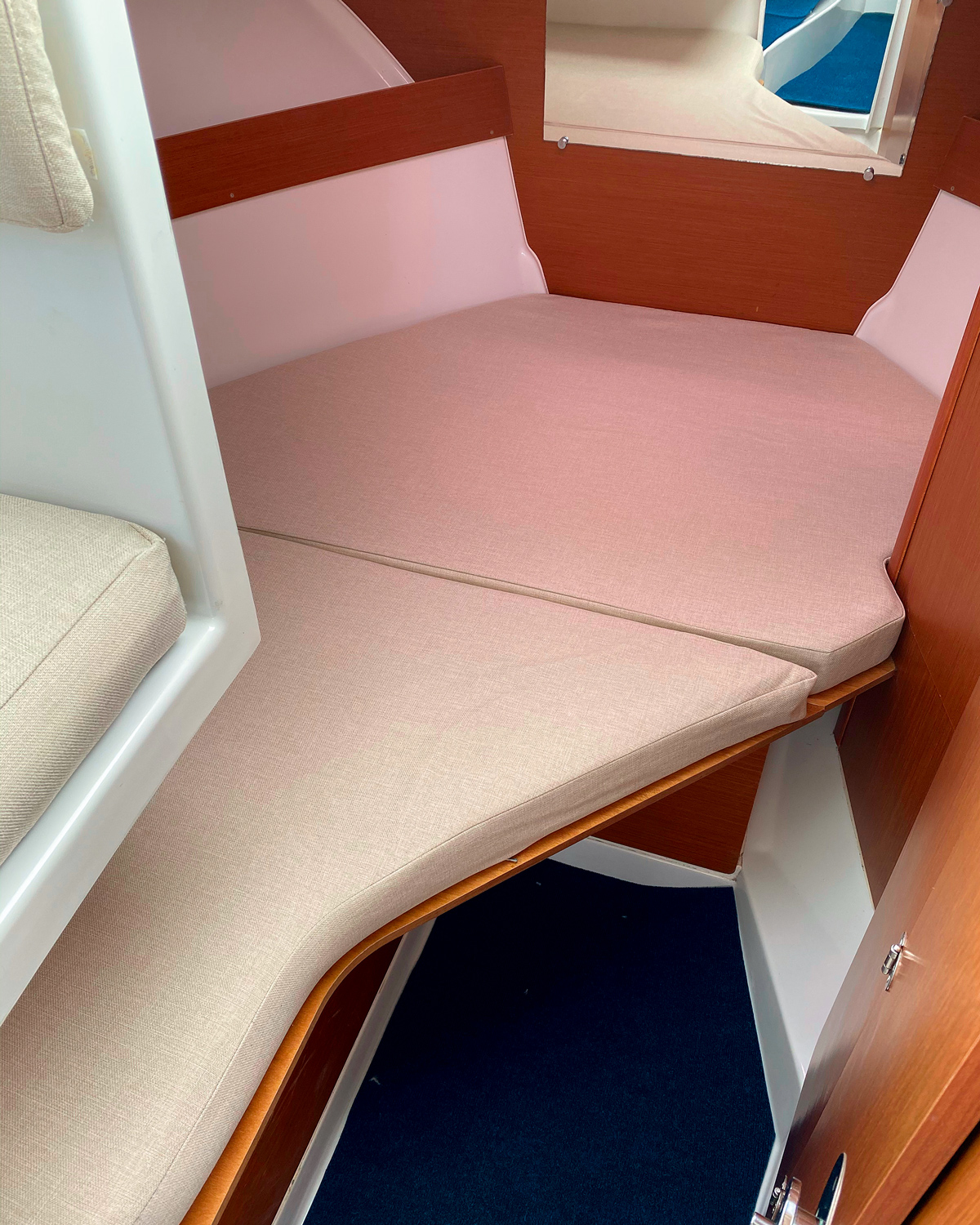
Step 4: Buy the boat
The pre-purchase contract was a template from the Association of Brokers & Yacht Agents (ABYA). It’s worth reading the entire 7-8 page document but pay particular attention to any clauses referencing the deposit and sea trial/survey.
I had to put down 10% of the purchase price to progress to the survey and sea trial stage. You also need to be clear about whether this is returnable and under what circumstances. Simply deciding you no longer want to buy the boat may not be enough without a clear reason, such as a mechanical issue or a problem with the survey.
The contract stipulated that the sea trial and survey had to be carried out within 14 days of signing the contract. This made me really nervous about signing it until I could get the experts in place. I explained it to the broker and thankfully, they were fine about it. I was determined to do the sea trial first as there was no point paying for a survey if the boat ran like a dog!

Better late than never – Phil popped his boating cherry aged 46
Even this requires some forethought though, as it can also carry a number of additional costs such as launch and recovery, and fuel. Be sure to ask what you will or won’t be expected to pay for. In my case the sea trial was limited to no longer than four hours and no more than five miles offshore. We also had to take our own lifejackets.
I took my experienced boating brother-in-law to give it the once over and to take the helm once the seller got us out of the marina into open water.
While he was in control I took the opportunity to look in every cubby hole and sit in each area of the boat to look for water ingress and listen for unexpected rattles. I then had a turn at the helm. It felt great but completely different to the 6m RIB I did my powerboat course on.
This would take some getting used to!
At the end of the sea trial I looked at the fuel gauge and noted that there were over 100 litres of petrol left in the 200-litre fuel tank – a handy bonus. However, I forgot to check with the broker if the boat would now be left unused until the purchase was completed.
Needless to say when I collected the boat and asked for the tank to be topped up, it cost me £278 in fuel alone, partly because much of the 100 litres had been used by then and partly because I hadn’t anticipated the extra cost of waterside fuel – at £1.90 a litre it was almost double the forecourt price at the time!
Carrying out the survey meant lifting the boat out of the water for a full hull inspection at the buyer’s expense – another unexpected cost. Clarke & Carter provided me with a list of trusted surveyors as the one I was intending to use was booked up for weeks. The cost of a survey is usually based on boat length, which varied from £14-£18 per foot during my ring around.
I ended up using John Munns, who provided a really good detailed report. He picked up on many of the same things I’d noticed during my inspection but he also measured the moisture content of the hull. Essentially, everything was fine.
Step 5: Bring her home
I looked into having the boat transported to its new home in Southend-on-Sea by road but costs for the 68-mile journey varied massively from £270-£690. In the end I decided to cruise it round by sea with the help of my brother-in-law and one of his equally experienced mates.
I bought lifejackets, flares and a jerry can of spare fuel for the emergency outboard we’d brought with us too. I also borrowed a liferaft – just in case.
Leaving Levington Marina was fine but with a strong north-easterly wind blowing down the North Sea, I handed over control to the experts.

Phil’s new Beneteau survived the treacherous delivery trip and is now safely berthed at Suffolk Yacht Harbour
To say the world was falling out of my rear end as we bucked up and down over waves that felt almost as tall as my new boat would be an understatement. I promised myself that I’d never put my wife and kids through that sweat-drenched, white-knuckle, trouser-soiling experience. Ever!
Thankfully, I was able to moor my boat in my brother-in-law’s berth for the rest of the year as his boat had already been lifted for winter, but that’s another cost coming my way.
Was it worth it?
Abso-friggin-lutely! I’ll never forget the joy on the kids’ faces the first time we went out on the boat as a family. Letting them drive was the best.
I earn the only income in our household and boat budget aside, the pre-purchase costs were more than I’d expected just to get to the point of boat ownership. However, looking back on it, the costs and process seem logical now. Not that they ever seem to stop.
I’ve since paid £212 to lift the boat out and store it, and £353 to service and winterise the outboard.
As a complete boat virgin the experience has been challenging but really enjoyable and I’m looking forward to spending much more time on her with family and friends this summer.
Everything on this journey has been a learning experience and I am capturing it all on my YouTube channel, The Boat Virgin, where I will keep a tally of all the costs, challenges and the fun.
It can all seem a bit daunting at times but hopefully the lessons I’ve learned will help others get there too. You never know, one of those big boats at the boat show may still be achievable – one day!
First published in the May 2021 issue of Motor Boat & Yachting.



